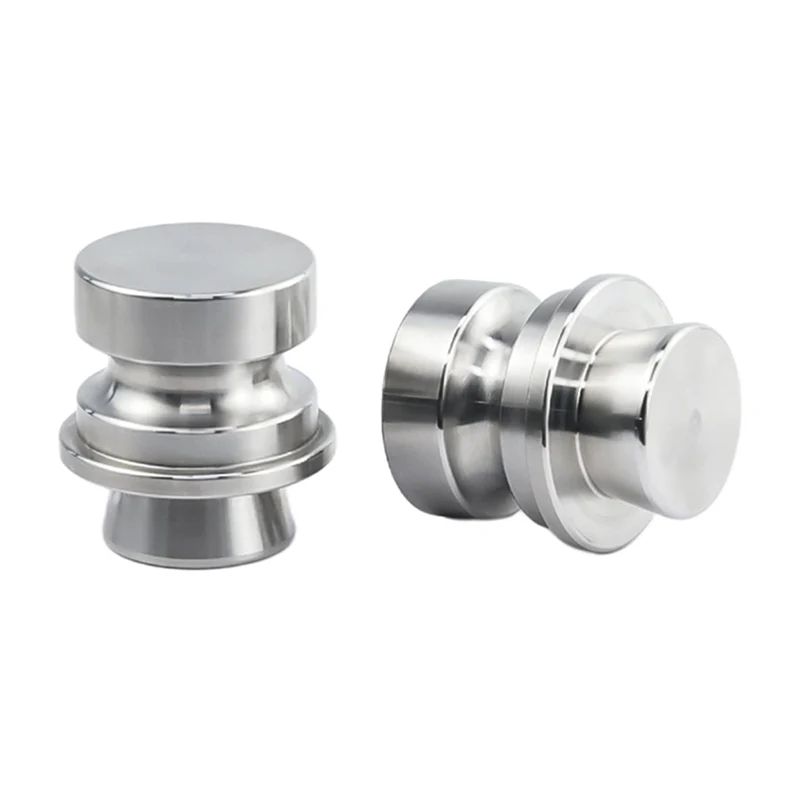What Are The Tolerances For CNC Precision Machining?
2025-09-01
CNC precision machining is a subtractive manufacturing process that uses computer-controlled machine tools to produce highly accurate parts. Understanding the tolerances achievable through this process is critical for engineers and designers to ensure parts meet design specifications and function correctly in their intended applications.
Defining Machining Tolerances
A tolerance is the permissible limit of variation in a physical dimension. It defines the acceptable range between the maximum and minimum size of a machined feature. Tolerances are crucial for ensuring interchangeability, proper fit, and overall functionality of CNC Precision Metal Parts. Tighter tolerances often lead to higher costs due to increased machining time, specialized equipment, and additional quality control measures.
Standard Machining Tolerances
For most commercial applications, standard machining tolerances are sufficient. These tolerances balance cost-effectiveness with functional performance. Our factory typically adheres to these standard ranges for non-critical features.
A general guideline for standard tolerances is as follows:
1. Metal Parts: ±0.005 inches (±0.127 mm)
2. Plastic Parts: ±0.010 inches (±0.254 mm)
It is important to note that specific tolerances can vary based on the feature type.
| Feature Type | Standard Tolerance (inches) | Standard Tolerance (mm) |
| Linear Dimensions | ±0.005 | ±0.127 |
| Holes (Diameter) | ±0.002 | ±0.051 |
| Bore Diameters | ±0.001 | ±0.025 |
| Threads | According to thread class | According to thread class |
Achieving Tight Tolerances with Zhihexing
While standard tolerances work for many applications, some industries like aerospace, medical, and optics demand much tighter precision. At our facility, we are equipped to hold exceptionally tight tolerances, often reaching as low as ±0.0002 inches (±0.00508 mm) for critical features on our CNC Precision Metal Parts. Achieving this level of precision requires a multi-faceted approach involving high-end machinery, strict environmental control, and meticulous inspection processes. Our investment in advanced CNC equipment and a skilled team allows us to meet the most demanding client specifications, a hallmark of the Zhihexing brand.
Factors Influencing Machining Tolerances
Several key factors determine the tolerances we can hold on any given project. Understanding these helps in designing parts for manufacturability.
1. Material Selection: Different materials behave uniquely during machining. Metals like aluminum and brass are generally easier to machine to tight tolerances compared to certain steels or plastics, which can be affected by heat and stress.
2. Part Design and Geometry: Complex geometries with thin walls or deep pockets can be challenging. Simple, robust designs are easier to machine accurately.
3. Machine Tool Capability: The age, condition, and precision of the CNC machine itself are fundamental. Our factory utilizes modern, well-maintained machines calibrated for peak performance.
4. Tooling Condition: Sharp, high-quality cutting tools are essential. Worn tools can cause deflection and dimensional inaccuracies.
5. Temperature and Environment: Machining generates heat, which can cause material expansion. Our climate-controlled environment helps mitigate this variable.
Frequently Asked Questions
Q1: What is a standard tolerance for CNC machining?
A standard tolerance for CNC machined metal parts is typically ±0.005 inches (±0.127 mm). This means a part dimension specified as 1.000 inch could be acceptable anywhere between 0.995 inches and 1.005 inches. This range is cost-effective for many applications where ultra-precise fits are not critical.
Q2: How do I specify tolerances on a technical drawing?
Tolerances are specified on engineering drawings using geometric dimensioning and tolerancing (GD&T) symbols or by applying direct limit dimensions. For general tolerances, a note in the title block is used, such as "Unless otherwise specified, all dimensions are in inches and tolerances are ±0.005." Critical features should have their tolerances explicitly called out.
Why Choose Our Precision Machining Services
At our factory, we understand that precision is non-negotiable. We pride ourselves on delivering CNC Precision Metal Parts that consistently meet and exceed customer expectations. Our rigorous quality assurance protocols, including first-article inspection and in-process checks, ensure every part that leaves our facility is perfect. The Zhihexing commitment to excellence is embedded in every step of our process. For a detailed quote on your next project or to discuss your specific tolerance requirements, contact us at Shenzhen Zhihexing Electromechanical Co., LTD.



